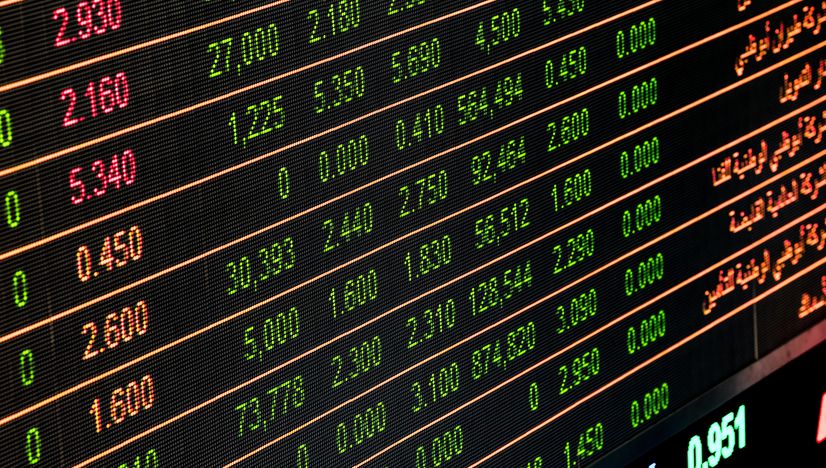By Lewis Krauskopf
Global investors were on edge as Americans headed to the polls on Tuesday, drawing to a close a dramatic U.S. election cycle that has moved bonds, stocks and other assets in recent months and could further sway markets as results become clearer.
One of the most unusual elections in modern U.S. history could yield starkly different implications for tax and trade policy as well as for U.S. institutions depending on whether Republican Donald Trump or Democrat Kamala Harris prevails.
The results could rattle assets around the world and lead to broad financial fallout, including on the outlook for U.S. debt, the strength of the dollar and a host of industries that make up the backbone of Corporate America.
With polls showing a dead heat between the former president and the current vice president and control of the U.S. Congress also at stake, investors are wary of any unclear or contested result that could fuel volatility stemming from any lasting uncertainty about the political backdrop.
As votes start to be reported on Tuesday evening, investors will train their attention on tallies from a handful of bellwether counties across the country that could indicate early clues about the winner. But many of the battleground states that will decide the race may not have meaningful results until at least late at night.
“This is the most significant election that I have seen in my career,” said Mike Mullaney, director of global markets research at Boston Partners, who has worked in investment management for over 40 years.
“It’s going to be very bifurcated, with certain things happening under Trump winning, and certain things happening under Harris winning,” Mullaney said.
The four largest U.S. banks encouraged their workers to participate. JPMorgan Chase, Bank of America, Citigroup and Wells Fargo gave employees several hours of paid time off to vote, while some lenders underscored the need to work across political lines.
Bets on the election outcome have had a hand in swaying markets. Traders have cited Trump’s gains in polls and betting markets as a factor driving assets that could be influenced by his pledges to raise tariffs, cut taxes and decrease regulations.
Those so-called Trump trades include tumbles in the Mexican peso , which could be hit by tariffs, wild swings and rallies in industries that could benefit from looser regulation, such as regional banks and bitcoin.
Yields on Treasuries – which move inversely to bond prices – have also risen, as investors price in potentially higher inflation, another projected consequence of Trump’s policies.
Trump Media shares were up around 12% on Tuesday afternoon, while bitcoin was up some 4% as betting markets leaned more heavily in favor of Trump.
Several analysts said the so-called Trump trades were strengthening in the absence of new catalysts, and cautioned that results were still too close to call.
“People who back the former president tend to be quite enthusiastic,” said Steve Sosnick, market strategist at Interactive Brokers. “This is their last opportunity to express that enthusiasm in the market.”
A Harris presidency, meanwhile, is expected to result in tougher regulations, more support for clean energy and potentially higher taxes on companies and wealthier individuals.
“The market is getting pulled and pushed in different directions here as investors try to price in a lot of unknowns as it relates to the election,” said Matt Miskin, co-chief investment strategist at John Hancock Investment Management. “In the next week or so we will get certainty; either it reinforces this positioning or there is going to be a shakeout.”
Both Trump and Harris would likely need their respective parties to win control of Congress in order to alter tax rates. A so-called Blue Wave, where Harris prevails and Democrats gain control of both the House of Representatives and the Senate, is a result that most investors deem as unlikely, however.
“If Harris does win … she is now highly likely to face a Republican-controlled Senate, which would leave most of her fiscal plans dead in the water,” analysts at Capital Economics said in a note on Friday.
Historic data shows that stocks tend to perform well at the end of election years regardless of which party wins, as investors embrace clarity about the political situation.
This year, however, some investors are concerned that the result will be too close to call, increasing uncertainty for markets. Another worry is that the election will be contested, in a move similar to Trump’s efforts to overturn his loss to President Joe Biden in 2020.
While recent precedents for challenged elections are few, investors are mindful of 2000, when the race between George W. Bush and Al Gore was undecided for more than a month due to a vote recount in Florida. During that period, the S&P 500 slumped 5%, when sentiment was also weighed down by unease about technology shares and the broader economy.
Though the S&P 500 is only about 1.5% down from its record high, stocks have grown more turbulent in the past week following mixed earnings reports from megacap tech companies and increased anxiety over the election. The Cboe Volatility Index, known as Wall Street’s fear gauge, has risen to above 20, after falling below 15 in late September.
An unclear election “is a big problem because that is what we had in 2000,” said Matt Maley, chief market strategist at Miller Tabak. “What is it going to do this time when you have so much going on in the geopolitical arena?”
Reuters

